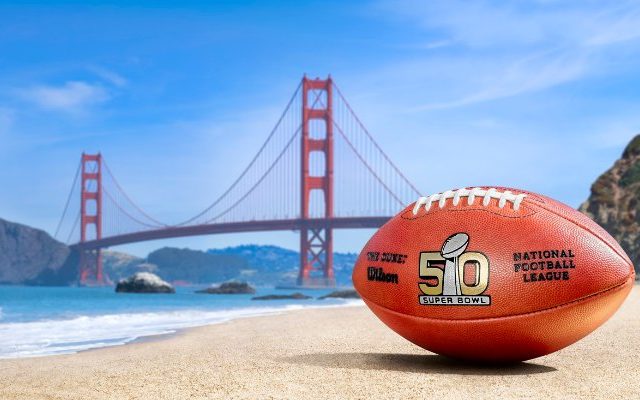In the 1997 movie Men in Black, agent Jay (Will Smith) cannot believe that agent Kay (Tommy Lee Jones) uses supermarket tabloids for tips on aliens. Kay responds that he is not looking but has actually found tips while holding a tabloid that reads as “alien stole my husband’s skin”. I felt something like what Jay did when I saw Super Bowl 50 TVCs that were inspired by 9gag. Read on, you may agree (oh sigh, this is published online, so you can very well disagree by trolling).
Super Bowl ads are beyond just about reaching 100 million people watching the game live, it’s the free media earned that justifies brands investing $5 million for a 30 second spot. Historically the free media space were earned by cleverly deploying PR tactics centred on the likeability and talkability factors of these ads. But the digital age had redefined earned media, if ain’t shared and liked, it ain’t cool you know.
If millennials are the drivers of internet then why not peg the ad’s plot on what resonates with them at a fundamental level.
Last year, 1600 years of Super Bowl ads were watched on YouTube, double from the year before, with such unprecedented on-demand watch rate of these ads, brands are all competing to cross benchmarks set by themselves. Being mandated to make TV commercials ‘go viral’ has been a bane for advertising agencies, and that can’t be achieved by merely superimposing a hashtag to a film made primarily for TV medium; there has to be an insight that co-joins the brand and consumer at the hip for the magic to happen.
Many internet inspired strategies have been adopted by brands, from T-Mobile getting Kim Kardashian to mock at herself to Volkswagen ‘leaking’ their Super Bowl commercials on YouTube a week before the big event, there are many success stories of brands getting it right. But today, it’s more like a norm to premiere ads and teasers of ads online to get traction early on. Inspired by what ‘left shark’ did to last year’s Super Bowl, YouTube has even introduced Real Time Ads to enable selected Super Bowl advertisers to cash in on micro moments and reach millions of audiences within moments of such an event. But a paid-ad-for-making-another-ad go viral sounds ridiculous. So what else can guarantee to make these ads a hit?
It is common wisdom that great marketing insights comes from people and culture, seldom from the category in which the brand operates. If millennials are the drivers of internet then why not peg the ad’s plot on what resonates with them at a fundamental level. On the golden jubilee year of the big game, many brands seem to have taken a cue from the internet’s very own creative canvas of expression – memes; which usually hung at the gallery called 9gag. Here are a few internet inspired ads that’s getting upvotes.
#PuppyMonkeyBaby: Mountain Dew combined three cute things, a puppy, a monkey and a baby to form a creepy hybrid- Puppy-Monkey-Baby that dances and licks the face of a teenager in this spot. The ad ends with a message ‘three awesome things combined’ which are Dew, Juice, and Caffeine. This perhaps maybe the first time a brand is doing it but internet is filled with such cute-turned-creepy things. Try Googling ‘That’s enough internet for today’ and you’ll unlock a treasure trove of the hybrid animals like Dorse (duck + horse), a shark with six pack abs and more, all born out of mutation through Photoshop. Caution: Can’t be unseen!
 (L to R. Mountain Dew’s PuppyMonkeyBaby and a compilation of images from 9gag with heading ‘That’s Enough Internet for Today’)
(L to R. Mountain Dew’s PuppyMonkeyBaby and a compilation of images from 9gag with heading ‘That’s Enough Internet for Today’)
Walken Closet: Christopher Walken uses a pair beige socks vs a polka dotted socks as an analogy to differentiate Kia’s new Optima from the normal boring sedans. The ad’s claim aside, internet is filled with Walk-in jokes. Err, Walken puns.

(L to R. Walken in Kia’s ad. Puns on walk-in)
#GiveADamn: You know what the internet doesn’t like to give people who provide unsolicited free advice? A F***. This service oriented campaign by Budweiser where Oscar winning actor Helen Mirren dissuades people from drunk driving is a rather asking people to give a, well, damn about it, and guess what? it’s working.

(L to R. Hellen Mirren in Budweiser’s ad. The internet’s version of I-don’t-give-a-f*** meter)
Drop the ball: T-Mobile features hashtag #Ballogize (portmanteau of ball + apologize) as a comeback on their Super Bowl TVC, the ad is a ‘friendly’ intimidation at Verizon who previously used a bunch of balls sliding in a maze to prove they have better coverage than T-Mobile. In comparison to what Pepsi and Coke do, this isn’t much of an ad-war, until you consider T-Mobile used Steve Harvey as the anchor to deliver the #Ballogize message. Steve Harvey became an internet rage and a meme after last year’s infamous incident where he announced the wrong pageant as Miss Universe. His self-mockery this time for T-Mobile has turned the joke on Verizon.
Beside inspiration from memes, there are a bunch of ads that internet would dig, Singing sheep & talking dog (Honda), Cute wiener dogs in fluffy hotdog costumes (Heinz), Drake, rap, and bling (T-Mobile), Aliens joking on human race (Avocados from Mexico), Liam Neeson delivering captivating dialogue (LG), Ryan Reynolds overdose (Hyundai), an ensemble of stars like Seth Rogen, Amy Schumer, Ronda Rousey and Paul Rudd with too many innuendo (Bud Light), Kevin Hart as a stalking dad (Hyundai), and of course, Hulk and Ant Man fighting it out for a can of Coke mini. The internet can’t have enough of it all, maybe, just saying until Leo wins an Oscar.
Originally published in Digital Market Asia.
Sreeraman Thiagarajan is Vice President at Publicis Beehive. Views expressed are personal. Connect with him on twitter at @sree_raman
Recommended Reads
Ten essentials for entrepreneurs looking to build a successful brand
The fence sitters guide to taking the entrepreneurial plunge
Article by channel:
Everything you need to know about Digital Transformation
The best articles, news and events direct to your inbox
Read more articles tagged: Featured






